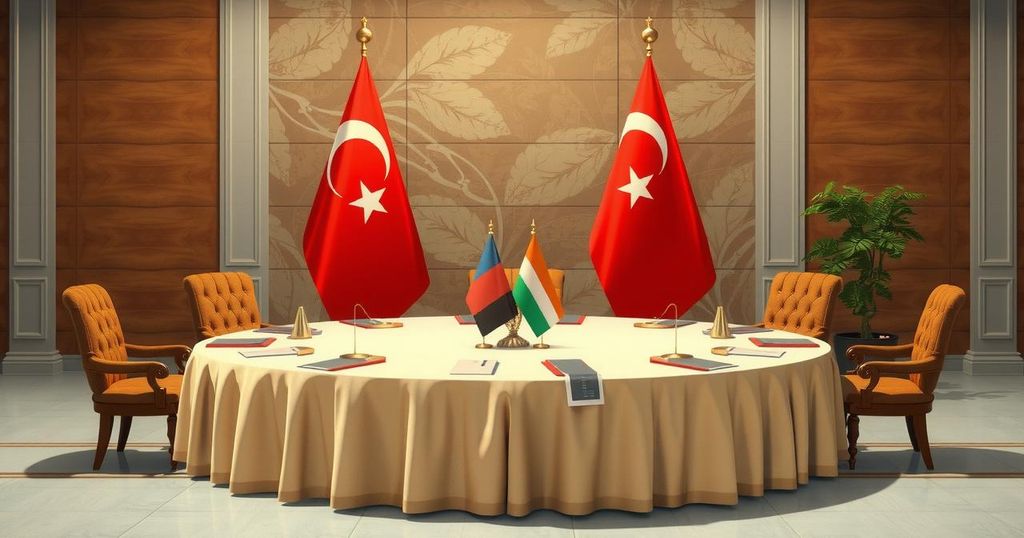On Friday, Indonesia and Russia signed their first extradition treaty, aimed at combating transnational crime and strengthening bilateral relations. The agreement comes as thousands of Russians migrate to Bali following the invasion of Ukraine. This treaty marks a significant step in Indonesia’s legal framework for cooperation against crime with a European country.
On Friday, Indonesia and Russia formalized an extradition treaty aimed at enhancing their cooperation in combating transnational crime, marking Indonesia’s inaugural extradition agreement with a European nation. The treaty was signed by Indonesian Minister of Law and Human Rights, Yasonna Laoly, alongside Russian Minister of Justice, Konstantin Chuychenko, who emphasized that this agreement paves the way for a systematic and productive partnership in the realm of crime prevention. The signing took place on the tourist hub of Bali, where many Russians have sought refuge following the onset of Russia’s military actions in Ukraine in February 2022. In the year prior, Russian nationals constituted the second-largest group of visitors to Bali, trailing only Australians, and this number is expected to continue its ascent. Amidst escalating sanctions from Western countries, Russia has been diligently working to solidify ties with non-Western countries, particularly in Asia and Africa. The Russian embassy in Jakarta has indicated that President Putin has proposed significant investments, including funding for Indonesia’s new capital in Borneo and a USD 22 billion refinery in East Java.
The recent extradition treaty between Indonesia and Russia is set against a backdrop of significant geopolitical shifts, particularly following Russia’s invasion of Ukraine, which has led to a substantial exodus of Russians to places like Bali. This treaty not only represents a legal framework for both nations to address crime but also reflects Russia’s strategy to deepen its diplomatic and economic ties with countries previously viewed as neutral or non-hostile amidst global sanctions imposed by Western nations. This move is indicative of broader trends in international relations, where countries are seeking to forge new alliances and partnerships in response to shifting geopolitical realities.
In summary, the extradition treaty signed between Indonesia and Russia signifies a pivotal development in their bilateral relations, providing a formal mechanism for joint efforts against transnational crime. This agreement is framed by the broader context of geopolitical readjustments as countries like Russia seek to strengthen ties with Asia and other regions in light of isolation from Western nations. The increasing presence of Russian nationals in Bali further underscores the implications of this treaty, both for regional security and international relations.
Original Source: www.scmp.com




